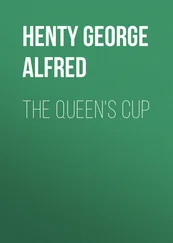George Henty - The Lost Heir
Здесь есть возможность читать онлайн «George Henty - The Lost Heir» — ознакомительный отрывок электронной книги совершенно бесплатно, а после прочтения отрывка купить полную версию. В некоторых случаях можно слушать аудио, скачать через торрент в формате fb2 и присутствует краткое содержание. Жанр: foreign_prose, foreign_children, на английском языке. Описание произведения, (предисловие) а так же отзывы посетителей доступны на портале библиотеки ЛибКат.
- Название:The Lost Heir
- Автор:
- Жанр:
- Год:неизвестен
- ISBN:нет данных
- Рейтинг книги:3 / 5. Голосов: 1
-
Избранное:Добавить в избранное
- Отзывы:
-
Ваша оценка:
- 60
- 1
- 2
- 3
- 4
- 5
The Lost Heir: краткое содержание, описание и аннотация
Предлагаем к чтению аннотацию, описание, краткое содержание или предисловие (зависит от того, что написал сам автор книги «The Lost Heir»). Если вы не нашли необходимую информацию о книге — напишите в комментариях, мы постараемся отыскать её.
The Lost Heir — читать онлайн ознакомительный отрывок
Ниже представлен текст книги, разбитый по страницам. Система сохранения места последней прочитанной страницы, позволяет с удобством читать онлайн бесплатно книгу «The Lost Heir», без необходимости каждый раз заново искать на чём Вы остановились. Поставьте закладку, и сможете в любой момент перейти на страницу, на которой закончили чтение.
Интервал:
Закладка:
The General shrugged his shoulders.
"My dear child, you may say the same thing of pretty nearly every unmarried man you meet. When a man marries and sets up a household one does get to know something about him. There are his wife's relations, who, as a rule, speak with much frankness concerning a man who has married their daughter, sister, or cousin. But as to bachelors, as a rule one has to take them at their own valuation. Of course, I know no more than you do as to whether Simcoe is in all respects an honorable gentleman. It is quite sufficient that he saved my life, almost at the sacrifice of his own, and whatever the life he may have led since is no business of mine. He is distinctly popular among those I have introduced him to, and is not likely in any way to discredit that introduction."
That Hilda was not entirely satisfied was evident by the letter she wrote when her uncle had, as usual, gone up one afternoon to his club.
"My Dear Netta: I have told you several times about the Mr. Simcoe who saved uncle's life out in India, and who is so intimate at the house. I can't say that either my acquaintance with or my liking for him increases. He does not stand the test of the system, and the more I watch his lips the less I understand him. He talks fluently and quickly, and yet somehow I feel that there is a hesitation in his speech, and that his lips are repeating what they have learned, and not speaking spontaneously. You know that we have noticed the same thing among those who have learned to speak by the system but are not yet perfect in it, so I need not explain further what I mean, as you will understand it. For example, I can always tell at a public meeting, or when listening to a preacher, whether he is speaking absolutely extemporarily or whether he has learned his speech by heart beforehand.
"I really strongly misdoubt the man. Of course I know that he saved my uncle's life; beyond that I know nothing of him, and it is this very feeling that I do know nothing that disquiets me. I can no more see into him than I can into a stone wall. I can quite understand that it is of very great importance to him to stand well with the General. He came here a stranger with a queer history. He knew no one; he had money and wanted to get into society. Through my uncle he has done so; he has been elected to two clubs, has made a great number of acquaintances, goes to the Row, the Royal Academy, the theaters, and so on, and is, at any rate, on nodding terms with a very large number of people. All this he owes to my uncle, and I fail to see what else he can wish for. It would be natural with so many other engagements that he should not come to us so often as he used to do, but there is no falling off in that respect. He is the tame cat of the establishment. I dare say you think me silly to worry over such a thing, but I can't help worrying. I hate things I don't understand, and I don't understand this man.
"Another thing is, Walter does not like him. He constantly brings the child toys, but Walter does not take to him, refuses absolutely to sit upon his knee, or to be petted by him in any way. I always think that it is a bad sign when a child won't take to a man. However, I will not bother you more about it now; I will keep him out of my letters as much as I can. I wish I could keep him out of my mind also. As I tell myself over and over again, he is nothing to me, and whether he possesses all the virtues or none of them is, or at any rate should be, a matter of indifference to me. I can't help wishing that you had come over here two months later, then I should have had the benefit of your advice and opinion, for you know, Netta, how accustomed I was for years to consider you almost, if not quite, infallible."
CHAPTER VII.
JOHN SIMCOE'S FRIEND
There was a great sensation among the frequenters of the house in Elephant Court when they were told that Wilkinson had sold the business, and the new proprietor would come in at once. The feeling among those who were in his debt was one of absolute dismay, for it seemed to them certain the amounts would be at once called in. To their surprise and relief Wilkinson went round among the foreigners, whose debts in no case exceeded five pounds, and handed to them their notes of hand.
"I am going out of the business," he said, "and shall be leaving for abroad in a day or so. I might, of course, have arranged with the new man for him to take over these papers, but he might not be as easy as I have been, and I should not like any of you to get into trouble. I have never pressed anyone since I have been here, still less taken anyone into court, and I should like to leave on friendly terms with all. So here are your papers; tear them up, and don't be fools enough to borrow again."
Towards his English clients, whose debts were generally from ten to twenty pounds, he took the same course, adding a little good advice as to dropping billiards and play altogether and making a fresh start.
"You have had a sharp lesson," he said, "and I know that you have been on thorns for the last year. I wanted to show you what folly it was to place yourself in the power of anyone to ruin you, and I fancy I have succeeded very well. There is no harm in a game of billiards now and then, but if you cannot play without betting you had better cut it altogether. As for the tables, it is simply madness. You must lose in the long run, and I am quite sure that I have got out of you several times the amount of the I. O. U.'s that I hold."
Never were men more surprised and more relieved. They could hardly believe that they were once more free men, and until a fresh set of players had succeeded them the billiard rooms were frequently almost deserted. To Dawkins Wilkinson was somewhat more explicit.
"You know," he said, "the interest I took in that will of General Mathieson. It was not the will so much as the man that I was so interested in. It showed me that he was most liberally disposed to those who had done him a service. Now, it happens that years ago, when he was at Benares, I saved his life from a tiger, and got mauled myself in doing so. I had not thought of the matter for many years, but your mention of his name recalled it to me. I had another name in those days – men often change their names when they knock about in queer places, as I have done. However, I called upon him, and he expressed himself most grateful. I need not say that I did not mention the billiard room to him. He naturally supposed that I had just arrived from abroad, and he has offered to introduce me to many of his friends; and I think that I have a good chance of being put down in his will for a decent sum. I brought money home with me from abroad and have made a goodish sum here, so I shall resume my proper name and go West, and drop this affair altogether. I am not likely to come against any of the crew here, and, as you see," and he removed a false beard and whiskers from his face, "I have shaved, though I got this hair to wear until I had finally cut the court. So you see you have unintentionally done me a considerable service, and in return I shall say nothing about that fifty pounds you owe me. Now, lad, try and keep yourself straight in future. You may not get out of another scrape as you have out of this. All I ask is that you will not mention what I have told you to anyone else. There is no fear of my being recognized, with a clean-shaven face and different toggery altogether, but at any rate it is as well that everyone but yourself should believe that, as I have given out, I have gone abroad again. I shall keep your I. O. U.'s, but I promise you that you shall hear no more of them as long as you hold your tongue as to what I have just told you. Possibly I may some day need your assistance, and in that case shall know where to write to you."
It was not until after a great deal of thought that John Simcoe had determined thus far to take Dawkins into his confidence, but he concluded at last that it was the safest thing to do. He was, as he knew, often sent by the firm with any communications that they might have to make to their clients, and should he meet him at the General's he might recognize him and give him some trouble. He had made no secret that he had turned his hand to many callings, and that his doings in the southern seas would not always bear close investigation, and the fact that he had once kept a billiard room could do him no special harm. As to the will, Dawkins certainly would not venture to own that he had repeated outside what had been done in the office. The man might be useful to him in the future. It was more than probable he would again involve himself in debt, and was just the weak and empty-headed young fellow who might be made a convenient tool should he require one.
Читать дальшеИнтервал:
Закладка:
Похожие книги на «The Lost Heir»
Представляем Вашему вниманию похожие книги на «The Lost Heir» списком для выбора. Мы отобрали схожую по названию и смыслу литературу в надежде предоставить читателям больше вариантов отыскать новые, интересные, ещё непрочитанные произведения.
Обсуждение, отзывы о книге «The Lost Heir» и просто собственные мнения читателей. Оставьте ваши комментарии, напишите, что Вы думаете о произведении, его смысле или главных героях. Укажите что конкретно понравилось, а что нет, и почему Вы так считаете.












